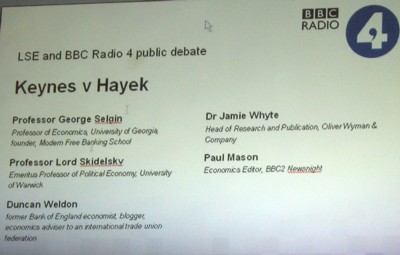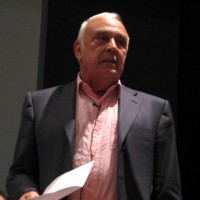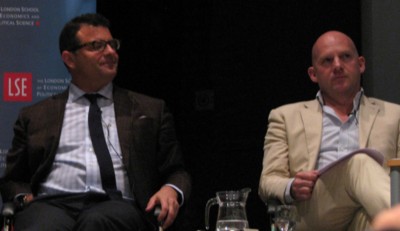We are developing the social individualist meta-context for the future. From the very serious to the extremely frivolous... lets see what is on the mind of the Samizdata people.
Samizdata, derived from Samizdat /n. - a system of clandestine publication of banned literature in the USSR [Russ.,= self-publishing house]
|
As a new (slightly overweight) inhabitant of Neuilly-sur-Seine, I have got into the habit of walking the boundaries of this small suburb to the West of Paris [link in French]. The idea is to become familiar with the street names and neighbourhoods, and drop a few kilos in the process. At many of the main road junctions, rather nicely-built small brick houses can be found, looking like 19th century rural railway stationmasters cottages. They are in fact a vestige of one the French Revolution’s greatest failures, and probably the only thing the collaborationist government of Le Maréchal did right.
August 1st, 1943 is the date when Pierre Laval’s proposal to abolish internal customs tariffs in France came into effect. It was even done for a good reason: wartime hardship meant that the population of France was suffering enough trouble obtaining food at all without having to deal with a tax for crossing a city boundary.
One of the complaints that triggered the 1789 revolution was the practice of taxing the transport of goods within France. For nearly a decade, the “octroi” was eliminated, but restored by the Directorate in 1798. Several attempts were made to scrap the tax during the 19th century. At the turn of the 20th century, individual towns were allowed to scrap the tax, but many did not do so, due to the lack of an alternative source of revenue.
The Neuilly Octroi buildings have been preserved and in some cases have better (or worse) uses today. One of them is a shop selling newspapers and sandwiches. Another is the local office of a trade union syndicate, which I am guessing, is provided either free of charge or at a subsidized rate.
I like the fact that a reminder exists of a time when families would go out of town to buy such things as butter or jam, and smuggle it in baby prams to avoid the tax, less dramatic versions of Checkpoint Charlie. I have not checked, but Montmartre was outside the Paris octroi in the 19th century and as a result a lot of bars opened up offering the Parisian equivalent of “booze cruises.” This in turn became the spot where artists looking for cheap alcohol – especially absinthe – would hang out. So the octroi may well have had a profound indirect effect on the artistic careers of Salvador Dalí, Amedeo Modigliani, Claude Monet, Pablo Picasso and Vincent van Gogh.
Pierre Laval was shot for his crimes in 1945. Scrapping the octroi was not one of them.
Ideas matter, and especially to intellectuals like President Obama. He is not a rigid ideologue and is capable of flexible maneuvering. But his interpretation of history, his attitude toward sovereignty, and his confidence in multilateral institutions have shaped his views of American power and of American leadership in ways that distinguish him from previous presidents. On Libya, his deference to the UN Security Council and refusal to serve as coalition leader show that he cares more about restraining America than about accomplishing any particular result in Libya. He views Libya and the whole Arab Spring as relatively small distractions from his broader strategy for breaking with the history of U.S. foreign policy as it developed in the last century. The critics who accuse Obama of being adrift in foreign policy are mistaken. He has clear ideas of where he wants to go. The problem for him is that, if his strategy is set forth plainly, most Americans will not want to follow him.
– The Obama Doctrine Defined by Douglas J. Feith and Seth Cropsey
The first match fixture to be drawn for the 2014 soccer world cup. One of the manifestations of globalization that will go largely unnoticed for a couple of years.
UPDATE: With North Korea and Syria in the same qualifying group of four teams, it looked like we could have a different sort of “Group of Death” than usual, but FIFA chickened out and put Iran and China in other groups.
MORE: Guatemala and Belize. The former’s government claims ownership of the latter. Football correspondent with war zone reporting experience required?
On a more pleasant note, the job I want is covering CONCACAF Group B: Trinidad & Tobago, Guyana, Barbados and the Bahamas. Well, someone has got to go there and report on the beaches, I mean football matches…
EVEN MORE: “In consideration of the delicate political situation between Russia and Georgia, FIFA has agreed to a UEFA request that these two teams not be drawn together.” [From the news feed here]
Better (a thousand times better) an athiest who believes in objective truth than a “religious” person who does not.
– our very own Paul Marks
At this point it might be useful to clarify precisely what the dispute concerns. The question is not whether the federal government should grow. As Reason’s Nick Gillespie pointed out a few days ago, nearly nobody in Washington has actually proposed shrinking the leviathan. To the contrary, the dispute is whether to raise federal spending from the current $3.8 trillion to $4.7 trillion over the next decade (the Paul Ryan plan) – or to $5.7 trillion (the Obama plan). Bear in mind that those increases would come on top of one of the fastest expansions of federal spending in U.S. history. When President Obama took office, the budget stood at $2.9 trillion. Two. Point. Nine.
– A. Barton Hinkle
So the USA is screwed… and does this remind you of something?
Reading about the arrest of what appears to have been an extremist planning an attack on Ft Hood, Texas, I was struck by the contrast with the Oslo attack last weekend.
Private First Class Naser Jason Abdo, was arrested Wednesday after making a purchase at Guns Galore in Killeen, Texas, the same ammunition store where Maj. Nidal Hasan purchased the weapons he allegedly used to gun down 13 people and wound 32 others on Nov. 5, 2009.
The point being that a legal gun shop owner is more likely to call the police than a black market arms supplier would. Now if we could only get all the gun rights people in America to realise the advantages of legal outlets for drugs as well…
There is a great piece up at Cricinfo in which Suresh Menon remembers cricket dramas past, and reflects on how memory plays tricks.
Particularly fascinating was this, about this match played at Old Trafford in 1936:
India’s captain the Maharajkumar of Vizianagram (the only active cricketer to be knighted, we must remember, although it was not for services to cricket – he didn’t serve cricket till he gave it up altogether as player, captain, selector and broadcaster) called his opening batsman Mushtaq Ali aside for last-minute instructions. Vizzy had been worried about the growing stature of Vijay Merchant, and instructed Mushtaq to run him out. Mushtaq told Merchant, they had a good laugh, and put on 203 for the first wicket.
What a selfish, self-important bastard, and what a great punishment. I’m guessing that the Maharajkumar of Vizianagram was totally bought and paid for by the British (hence the knighthood), and that when Mushtaq and Merchant disobeyed him they felt that they were also defying the very Empire itself. You can see from the scorecard that “Vizzy” batted at number nine, scoring a grand total of six runs, and did not bowl, even though seven other Indians did. Talk about a non-playing captain.
What a joy for cricket fans like me that India used cricket to defy Britain, rather than defying Britain by dumping cricket and taking up – I don’t know – baseball, or something similar.
More Indian anti-Imperial defiance is reported here (my thanks to Antoine Clarke for the link). I think it’s a sign of how strong the Indian presence in the world generally now is that people feel relaxed about taking the piss out of Indians, and out of the non-Indians who now grovel to Indians. We couldn’t comfortably do that when Indians were nothing but the Starving Millions, and when, cricket-wise, they were mostly Ghandi clones who could only bowl slow and bat slow and play for draws.
I have been following the current England India cricket series with fascinated delight. This already feels like the best series here since 2005, which it will definitely be if the Indians come back hard, as is their recent habit, after their poor first test at Lord’s. At Lord’s, legendary Indian batsmen like V.V.S. Laxman and Sachin Tendulkar looked a bit like ancient monuments rather than current threats. Tendulkar’s mere participation in the game turned its last day from a fine occasion into a great one, but his actual batting was a disappointment. Of the three surviving members of the Big Four (the now retired Saurav Ganguly being the other), only Rahul Dravid made his presence truly felt. But Tendulkar is not old, he was merely ill. And if he in particular does some great things in the later games, what a series this could be.
By the way, I have been getting it wrong about England being already ranked number two in the test match rankings. Now that I have actually consulted the relevant website, I see that England are only at three, behind South Africa (India being top). My apologies. But, England will go to at least two if they beat India in the current series, and they will indeed go top if they beat India by a clear two games. That last bit, I definitely got right.
Game two starts tomorrow.
The good news: those polars bears killed by “global warming,” were not.
From the AP:
Charles Monnett, an Anchorage-based scientist with the U.S. Bureau of Ocean Energy Management, Regulation and Enforcement, or BOEMRE, was told July 18 that he was being put on leave, pending results of an investigation into “integrity issues.”
… observations suggested the bears drowned in rough seas and high winds and “suggest that drowning-related deaths of polar bears may increase in the future if the observed trend of regression of pack ice and/or longer open water periods continues.”
Bad news for some, I reckon.
A few years back, I proposed an alternative budget for the UK. IIRC, it involved cutting taxes by a quarter, spending by a third. Even assuming no increase in economic growth (that would boost sales tax revenue), this would have created a massive budget surplus that could have cut the UK national debt by over 10%.
I opposed default then for what I still think were good reasons: first, many private individuals and institutions bought bonds in good faith; but second, because the UK nearly had to surrender to Nazi Germany in 1940, and had refused to confront Hitler when war was still not necessary partly because of the consequences of a partial default on war bonds from the First World War. In essence, appeasement was the necessary policy of 1930s British governments because they could not expect to borrow so had to pay in gold and whatever the British public could be persuade/forced to raise (yes I know pacifism was big too, but the financial imperative meant that it was the only option).
Whether we take an interventionist view or not, the re-militarization of the Rhineland in 1936 was the moment when, without firing a shot, Hitler could have been stopped.
What does this have to with events in Europe and the USA today? In short, I think the financial situation is so dire, and the political solutions on offer so inadequate, that default is now the only credible outcome. I therefore conclude that it needs to happen very soon, rather than after wasting more resources on more “bail-outs.”
We will just have to take our chances that no one decides to, invade the Falklands, or grab Gibraltar, or build nuclear weapons and give them to terrorists, or blow up US embassies. I explain why below. → Continue reading: The debt ceiling should be cut not raised
I see that, no doubt under the influence of the same editorial prodding as I received this afternoon, Johnathan Pearce has already done a posting here (see below) about the debate last night (also attended by John Phelan) at the London School of Economics. What I have to say is really just an expanded version of what Johnathan Pearce has already said, but I’ll say it anyway, partly because I do have one distinct advantage over him in this matter. Unlike Johnathan but like John Phelan, I was actually there.
I took photos, including one that does quite a bit of further event describing, which saves me having to:
Click to make that more legible.
Here are the two bad guys, Skidelsky and Weldon:
And here are the two guys on our side, Selgin and Whyte:
Click on the good guys to get them bigger. (The bad guys are quite big enough already.) As you can probably deduce from my pictures, the lighting on the stage was what you might call excellent for radio.
As for what was said, my overriding impression was that the Hayekians won, but not in quite the sense that John Phelan means when he says that they won, i.e. (a) that the Hayekians were more numerous and shouted louder and (b) that the Hayekians included John Phelan. They were, they did and they do. The “Hayekians” included me as well, for whatever difference that makes to anything. No, this was a more significant victory for Austrianism in the broader sense than merely that some Keynesians were, in the opinion of one of the anti-Keynesians who attended, out-argued on the radio. The really important point is that Austrianism is being put up there beside the broadly Keynesian macro-economics orthodoxy, as the alternative. The alternative.
I recall in my youth reading a book by someone called Robert Townsend. Townsend was the boss of a car hire company called Avis, and it was on his watch that a go-ahead new advertising agency (a bit like the ones in Mad Men), urged on and applauded by Townsend and his underlings, coined the Avis advertising slogan: “We’re Number Two and We Try Harder”. Number One being the car rental company Hertz.
The point of the slogan wasn’t that it caused very much immediate hurt to Hertz. On the contrary, it acknowledged Hertz as Number One, which got everyone’s attention. Who are these guys calling themselves Number Two? Wow. The regular advertising thing in those days would have been for Number Two to scratch around until it had found some more or less implausible excuse to call itself Number One. Most of the hurts (pardon the pun) unleashed by this slogan were inflicted upon car hire companies Number Three, Four, Five and the rest of them. What the slogan about Avis being Number Two but trying harder did was separate Avis from the huge pack of “other” car hire companies. It turned Avis from nothing into Pepsi-Cola, you might say. Hertz continued to be Coke (whether Coke itself is still Coke is another argument), but Avis itself lept ahead, patronised by anyone who fancied trying a try-harder, less smug alternative to Hertz. The others, who were presumably trying just as hard as Avis, fell away.
That, I believe, is the significance of events like that debate last night. It puts Austrianism on the map as the “other” way of looking at all that financial turmoil we’ve been having lately. No Keynesians present at this debate will have been very discomforted by anything that was said during it. They had their guys up there on the platform and they clapped and laughed and cheered when their guys spoke with any eloquence, just as we (John Phelan, I and the rest of our team in the audience) clapped when our guys waxed eloquent.
For you see, this was a classic BBC event. Built into the DNA of the BBC is that in order to “do” anything that is opinion rather than mere news, you have to argue about it, and to argue about it, you have to have two sides. Not three sides or five sides. Two.
And the big trick, if you aren’t Number One in a BBC debate is somehow to wangle yourself the Number Two spot, and what’s more to get that spot entirely for your team. Austrianism, judging by last night’s show, is well on the way to accomplishing precisely that status. And this despite, as Lord Skidelsky himself quite rightly said, having a numerically tiny academic presence compared to the (approximately speaking) Keynesian orthodoxy.
The big point here is not, e.g., whether Lord Skidelsky said nice things about how the Chinese government goes about its Keynesian business (although he did), or whether Selgin spoke eloquently (he did in my biased opinion, eventually, and despite his rather comical reliance on waving minute and totally illegible graphs around, which don’t exactly go over a storm on the radio, as everyone except him seemed to realise). The point is that this debate was “Keynes v Hayek”, rather than “Keynes and his critics”. The speakers were two Keynesians and two Hayekians, rather than merely two Keynesians and then a pathetic queue of anti-Keynesian pygmies of about ten different varieties (several of them complaining that the Keynesian headliner acts weren’t being Keynesian enough) taking it in turns to be humiliated.
I agree with Phelan that Skidelsky’s open admiration for Chinese “investment” in “infrastructure”, in answer to a question about China from the floor (and huge kudos to whoever it was who asked it), was both an illustration of the inherently bossy nature of Keynesianism, just as Hayek said, and that this might have been seized on more eagerly by Whyte or Selgin than it was, which was hardly at all. Skidelsky’s answer was also a horrendous hostage to fortune. If Chinese infrastructure “investment” in recent years becomes famous for being as wasteful as some here already suspect, Skidelsky should be reminded of this pronouncement.
Speaking very much for myself, I was delighted when Skidelsky spelt out, with admirable clarity, that we Austrianists believe that President Roosevelt prolonged the Great Depression. At this point I shouted out words to effect of “quite right” and “he did”. Skidelsky then said, glancing contemptuously in the general direction of my heckling, that anyone who thought that was living in cloud cuckoo land. Fine. He was on the platform and was entitled to the last word on the matter. On the night.
The point being not to win arguments like this, but to have them, to let everyone listening know that, when it comes to things like whether Roosevelt had a good Great Depression or a bad Great Depression, there is an argument.
When it turns out (this was not really talked about last night) that actually, far from having calmed down, our new version of the Great Depression is still at the you-ain’t-seen-nothin’-yet stage, arguments like that one in particular about Roosevelt making the Great Depression worse, and in general about Keynes versus Hayek, could result in the Number One team in this bunfight being deposed. Guess who I think might – just might – be invited to step forward to replace that Number One team. I agree with Johnathan Pearce that “wallowing in despair” (see below) is, in times like these, a cop-out.
A final point, concerning the BBC master of ceremonies, Paul Mason. Mason had a lot to contend with, what with urging speakers to cool it with the paper flapping, organising the re-recording of bits when microphones fell off or when there was a big noise interrupting things or when the audience wasn’t quiet enough during the first attempt at a re-run, or when he himself had some intros to do but fluffed his lines, for instance by giggling. Also, from time to time, it was Mason’s rather undignified duty to get us all to yell either “Yo Keynes!” or “Yo Hayek!”, according to taste. Nevertheless, in among all that, I got the distinct impression that, if not actually on our side, Paul Mason is highly sympathetic to the case that the Hayek team were making. At the very least, he has taken the time to become thoroughly acquainted with what that case is.
An edited version of all this intellectual mud-slinging will be broadcast by Radio Four on August 3rd.
See also the latest Keynes v Hayek rap video. They played that at the beginning, to get everyone in the mood. Genius. If you want to know why I think it’s genius, you must be one of those people who skips to the end of blog postings without actually reading them. Which is fine, but: see all of the above.
I never had a mammogram and never hope to get one, and far from dreading mastectomy, the subject makes me positively canty: I could get a better fit in a shoulder holster.
– Florence King, “The New Hypochondriacs”.
In front of an admittedly pro-“Austria” crowd at the LSE, it seems that academics defending the free market views of the late F.A. Hayek managed to fairly heavily beat those speaking up for JM Keynes.
This may not amount to much, but what I think these things accomplish is to remind the defenders of people such as Keynes (such as Lord Skidelsky, his biographer), that there are now hundreds, in fact thousands, of smart young economics and politics graduates and undergraduates who regard, say, Keynes and other economic interventionists, as wrong. Some of these people will become teachers and lecturers themselves, or, if they want to make serious money, work in banks and the like. Slowly but surely, all those people teaching stodgy, wrong Keynesian ideas are getting older and greyer and newer people with other ideas are taking over, however slowly at first. This LSE debate is the sort of event that makes me think that while the 2008 financial crash might be seen, in one way, as a supposed setback for “unregulated capitalism” (yeah, right), it has also pushed attention on ideas that got out of focus in the lazy, fat years of the dotcom boom and the early parts of the past decade. (And then of course there are all those tens of thousands of book sales of Atlas Shrugged, etc).
Libertarians and other non-socialists like to moan how our places of Higher Learning have been gradually taken over by people with bad and wrong ideas. We need, I think, to realise that that argument can cut both ways. People with good, insightful ideas can also enter these institutions, however slowly at first, and make a key difference. I think this is happening more than people realise. I know that optimism is deeply out of fashion these days. Wallowing in despair is, in my view, a cop-out.
|
Who Are We? The Samizdata people are a bunch of sinister and heavily armed globalist illuminati who seek to infect the entire world with the values of personal liberty and several property. Amongst our many crimes is a sense of humour and the intermittent use of British spelling.
We are also a varied group made up of social individualists, classical liberals, whigs, libertarians, extropians, futurists, ‘Porcupines’, Karl Popper fetishists, recovering neo-conservatives, crazed Ayn Rand worshipers, over-caffeinated Virginia Postrel devotees, witty Frédéric Bastiat wannabes, cypherpunks, minarchists, kritarchists and wild-eyed anarcho-capitalists from Britain, North America, Australia and Europe.
|







